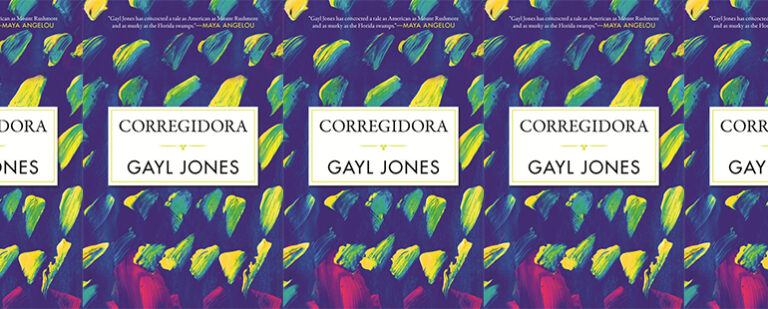The Danger and Loneliness of Passing

Brit Bennett’s recently published novel, The Vanishing Half, and Nella Larsen’s classic, Passing, reveal the danger—and loneliness—of a black woman passing for white in the early 1900s and the 1990s. Passing affords the freedoms and opportunities for reinvention that whiteness allows for. But this comes at a terrible cost: the erasure of personal history and the loss of family and community. In The Vanishing Half, to pass, Stella leaves behind poverty and her hometown—severing herself from her twin sister, Desiree—and marries her wealthy, white boss. Passing’s mercurial Clare, whose father is white, trades the poor relatives who exploit her for a wealthy, racist white man, but in doing so, she can no longer freely visit childhood friends and Harlem’s lively black community.
The Vanishing Half is set in Mallard, a tiny, unofficial Louisiana town founded by a light-complexioned black man for other black people like him who imagines that “his children’s children’s children, [will be] lighter still, like a cup of coffee steadily diluted with cream. A more perfect Negro. Each generation lighter than the one before.” The town’s black population is so light-skinned that the Catholic priest sent over from Dublin in 1938 sees people who are “[f]air and blonde and redheaded, the darkest ones no swarthier than a Greek.” He wonders if “this [was] who counted for colored in America, who whites wanted to keep separate.” Although Mallard so values lightness, however, its residents also concede that “[l]ightness, like anything inherited at great cost, was a lonely gift.” Stella and Desiree, the founder’s great-great-great-granddaughters, can easily pass for white, but only Stella chooses to do so permanently. “Passing like this, from moment to moment, was funny. Heroic, even,” Stella comments. “Who didn’t want to get over on white folks for a change? But the passe blanc were a mystery . . . . Maybe pretending to be white eventually made it so.” Temporarily passing is relatively low stakes and thrilling, but in choosing to pass permanently, one enters a mysterious world that can collapse with even the smallest of slip-ups. After being mistaken for white and hired as a secretary in New Orleans, Stella feels so freed by this new racial identity that she decides to pass permanently. Once she passes, however, a “curtain [hangs] between her past and present and she could never peek behind it. Who [knew] what might scuttle through?” To pass, Stella emotionally kills off her family, erasing Desiree by claiming she’s an only child and saying that her parents died in an accident. Lynched twice, only her father is actually dead, and the sight of him violently dragged from their home haunts Stella forever. She chooses to pass nonetheless, describing her choice as freeing and “rational.”
In Larsen’s novel, we see Clare’s passing through the lens of Irene Redfield. The women were childhood friends, though not close, and Irene is critical of Clare’s choices as well as of her character. After her white father’s death, Clare goes to live with her poor white relatives, regularly visiting her former black neighborhood until she suddenly disappears. Over a decade later, Irene meets Clare on a cool whites-only rooftop in Chicago where they go for respite on a blistering hot day. As they exchange pleasantries, it becomes clear that Irene is passing temporarily while Clare has decided to pass permanently. Delighted to see a friend from her former life, Clare invites Irene for tea in her home, and Irene—passing as Clare’s white friend—is subjected to Clare’s husband’s racist comments, though they are not directed at her personally since he thinks she, like his wife, is white. He is so unsuspecting that he even jokingly calls Clare a shortened version of the racial slur he began using for her when her skin darkened after their marriage despite the fact that he never doubts his wife’s whiteness and finds the prospect of marrying a black woman unthinkable. Irene is enraged by his racism, but Clare laughs it off and only admonishes her husband for going on too long about his “pet aversions,” her euphemism for his racism, showing no fear about her true racial identity being discovered. Later, Irene reflects on why she said nothing to Clare’s husband in the moment. “Why, in the face of Bellew’s ignorant hate and aversion, had she concealed her own origin?” Irene wonders. “Why had she allowed him to make his assertions and express his misconceptions undisputed?” Though she occasionally passes, Irene takes pride in her race, but repeatedly declines to stand up for it—as in this instance—by speaking out against racism and identifying herself as a black woman. Even though Irene finds Clare “catlike,” “selfish, and cold, and hard,” Irene can’t help but feel allegiance to Clare because of their shared race, though she notes that “Clare Kendry cared nothing for the race. She only belonged to it.” So Irene keeps silent out of “duty” to Clare. In doing so, Irene makes clear that race matters most to her. In contrast, being white initially matters most to Clare, but reconnecting with Irene reminds her of what she has lost, which leads her to become so lonely that she puts her white identity at great risk—something that results in a disastrous end.
Allegiance to one’s racial community—and choosing to act out of allegiance or not—in the face of racism runs through both novels. Stella, for example, engages in outright racist behavior as a way of maintaining her whiteness. When a black family moves in across the street, which upsets the neighborhood, usually quiet Stella protests against their arrival the firmest, then finds herself covertly striking up a friendship with the mother after the women’s daughters become friends. She later abruptly cuts off the friendship after neighbors gossip to Stella’s face about the relationship, which Stella quickly denies. The friendship’s end is precipitated by Stella’s daughter calling her playmate the n-word, which Stella herself taught her daughter as an explanation for why a white girl shouldn’t play with a black girl. When the family is driven from the neighborhood by racist violence Stella has a hand in, she daydreams about telling her former friend that she, too, is black—something she hasn’t told anyone since she began passing permanently. Ultimately, Stella continues to keep the secret, but even by just imagining revealing it, Stella feels, “for the first time, truly white.” She knows that her word would be believed over her black neighbor’s. Just as race takes pride of place for Irene, preserving her whiteness—and her white family—is most important to Stella, despite the fact that this comes at the cost of losing “her only friend in the world” as well as her other half, Desiree.
Unlike Stella, Clare constantly puts her racial identity in a precarious position, and her loneliness surmounts any fear she might have of her husband discovering her race. Now living in New York, where Irene also lives, Clare regularly visits Irene in Harlem when Clare’s husband is out of town. Two years after that disastrous Chicago tea—the last time she saw Clare—Irene tries to warn Clare about the danger of her husband discovering that she is black, attempting to impress upon Clare that her daughter’s life is also at risk. But when Irene questions Clare about her recklessness, Clare responds, “‘I’ve been so lonely . . . ! You can’t know . . . Never anyone to really talk to.’” Clare tells Irene that anyone who hasn’t decided to pass permanently can’t understand what it’s like. “You’re free,” Clare asserts. “You’re happy,” adding with “faint derision” that Irene is “safe.” Both Clare and Stella feel the sharp sting of loneliness by marrying a white husband and surrounding themselves with people who will never truly know them. Though their new lives have brought material gains, they yearn for the connections they once had, a yearning Clare gives into but that Stella combats with secrecy and racism. The two women must perform whiteness to be secure in it and are bound by their lies, which makes Clare, in the 1920s, feel stripped of freedom, though Stella, in the mid-to-late twentieth century, feels free.
For those who don’t pass feel a mixture of curiosity and revulsion about passing, it’s both praiseworthy and something to mourn. Irene “wished to find out about this hazardous business of ‘passing’ [from Clare], this breaking away from all that was familiar and friendly to take one’s chance in another environment, not entirely strange, perhaps, but certainly not entirely friendly either.” For Irene, passing holds “a fascination, strange and compelling,” similar to Stella’s early interest in its mystery. Yet Irene also describes passing as an “abhorrent thing.” When talking to her husband, she notes, “‘It’s funny about ‘passing.’ We disapprove of it and at the same time condone it. It excites our contempt and yet we rather admire it. We shy away from it with an odd kind of revulsion, but we protect it.’” Irene struggles to reconcile her curiosity about passing with her judgement of it, and she begins to find her identity as a black woman isolating. While at tea with Clare passing as white and another childhood friend, married to a white man, who speaks highly of her children’s light complexions, Irene feels “outnumbered, a sense of aloneness, in her adherence to her own class and kind; not merely in the great thing of marriage, but in the whole pattern of her life as well.” Even though Irene feels connected to her black community, these women’s praise of whiteness causes Irene to feel loneliness, too. Irene laments that it is “enough to suffer as a woman, an individual, on one’s own account, without having to suffer for the race as well.” Although Clare’s repudiation of her race spurs loneliness, Irene’s allegiance to her race causes her own loneliness in the wake of Clare passing.
Those left behind in The Vanishing Half also face repercussions. For decades, Desiree feels abandoned by Stella, and by not passing in her footsteps, Desiree’s life becomes radically different from her sister’s, leading her back to Mallard. Desiree marries “the darkest boy she could find,” according to the “colorstruck,” “high-falutin” people of Mallard, which they note upon her return home after she leaves her abusive husband and returns with her daughter, Jude. They are appalled by Jude’s dark skin, which is unacceptable in Mallard. The citizens assert that “[m]arrying a dark man and dragging his blueblack child all over town was one step too far.” The commonly held town belief was that “[i]f nothing could be done about ugliness, you ought to at least look like you were trying to hide it.” Jude’s own grandmother does everything she can to prevent Jude’s skin from darkening further, and when Jude looks at her school photos, she sees herself as a “fly in milk, contaminating everything.” Despite the colorism her daughter experiences, between tight finances and having to take care of her mother, Desiree sees no real option to leave Mallard, resigning herself to working at a diner. Ultimately, the lives of both Stella and Desiree are marred by hardship and loss, which leaves both twins discontented.
The Vanishing Half and Passing lay bare passing’s complicated price where no one escapes unscathed: the racist husband who’s been “gotten over”; the daughters surprised when their bi-racial identity comes to light; the family members left behind; the passer’s loneliness after rejecting family and culture. Such “reinvention” brings safety at the cost of freedom, financial security at the cost of community. In choosing to pass, one fractures their race and gender and even family. Jude—the child ostracized by Mallard because of the color of her skin, who faces racial slurs her whole life, who looks nothing like her mother, who is turned away by her own aunt—succinctly captures passing: “A body could be labeled but a person couldn’t, and the difference between the two depended on that muscle in your chest,” Jude reflects. “That beloved organ, not sentient, not aware, not feeling, just jumping along keeping you alive.” In the end, one’s humanity and true identity matter the most, and passing is a decision too fraught with the feelings of one’s heart to be a solely rational decision.


